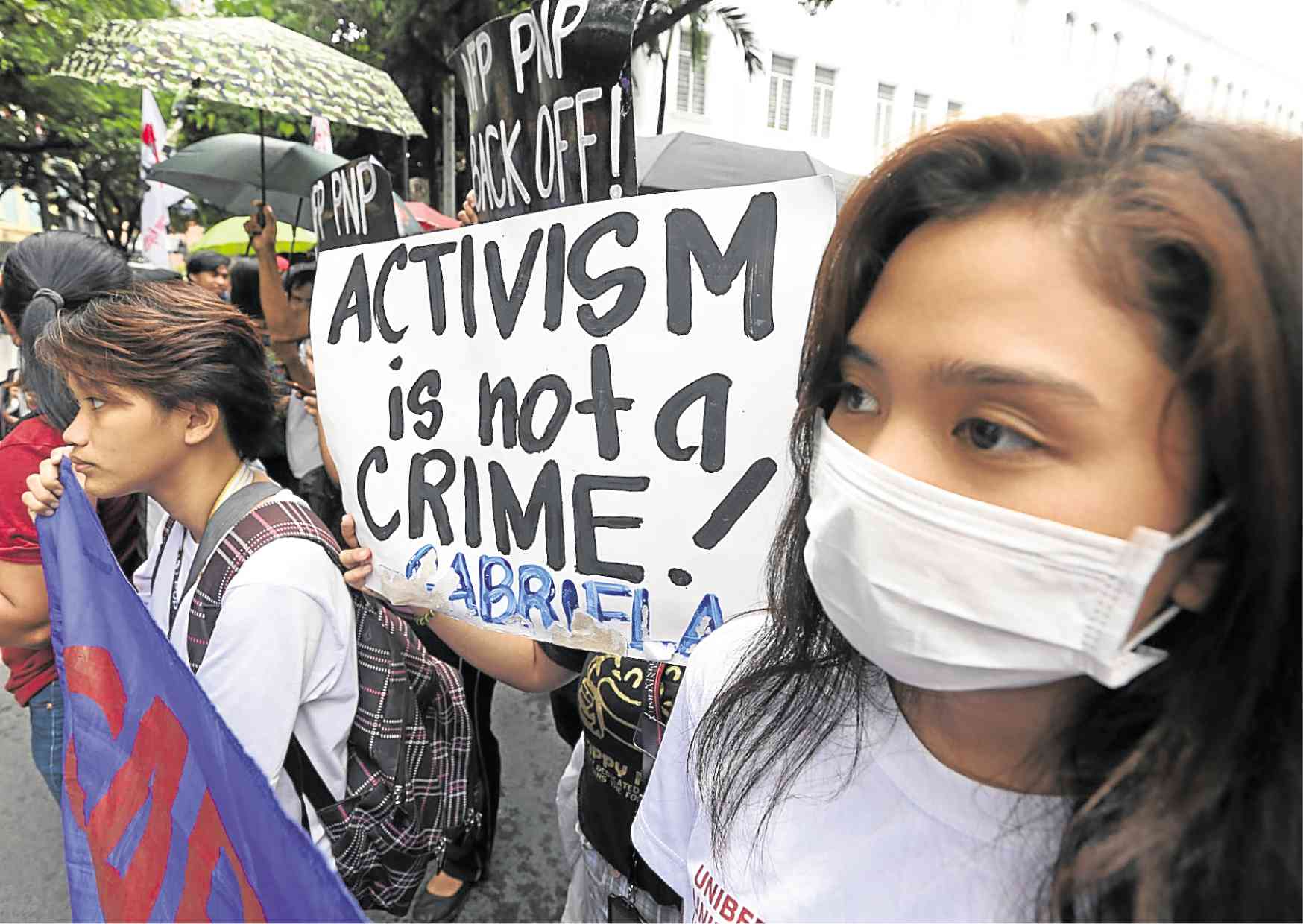
NO TO RED-TAGGING Militant youth protest against government forces’ insistence on being given access to schools and the red-tagging of activists in front of the Department of Justice office in Manila. —MARIANNE BERMUDEZ
MANILA, Philippines — Commission on Higher Education (CHEd) chair Prospero de Vera has insisted on the need to review a 1989 agreement between the Department of National Defense and the University of the Philippines (UP), citing the “prevalence of the drug problem” in the state university and its police force’s inability to handle crime and extremism.
Police Gen. Oscar Albayalde, the Philippine National Police chief, held a dialogue on Tuesday with members of the academe to thresh out concerns over his insistence that the PNP be given access to schools to eradicate extremism and communist recruitment.
Common ground
Other participants were UP president Danilo Concepcion, Polytechnic University of the Philippines president Emmanuel de Guzman, the UP Board of Regents, and representatives from Ateneo de Manila University and De La Salle University.
De Vera said the dialogue was a good initiative of the PNP as they could “find common ground on how we can work together,” as part of the CHEd’s campaign for safe and healthy campuses, safe from crime and extremism.
He noted that it was only in Metro Manila where there was a projection of conflict between schools and the security forces.
“Oftentimes what is covered are issues that are only in Metro Manila but in many parts of the country, the relationship between the PNP, the Armed Forces of the Philippines, and the universities is very, very close. There is no problem in terms of coordination. There is no problem in sharing of information, in sharing of crime statistics and helping each other,” he said.
As UP vice president, De Vera said he pushed for a review of the 1989 agreement between UP and the DND, citing the limited skills and capacity of the UP police in handling crime and radicalism on campus.
Unskilled
“We should not be expecting those in the academe to become policemen. They don’t have the skills, they don’t have the training and maybe what the media should investigate is what is the capability really of the UP police to handle the drug problem inside the campus because there are portions of the UP campus identified as areas where there is a prevalence of drugs,” he added.
De Vera said that simply working together to train the UP police and information-sharing were already part of the review of the agreement.